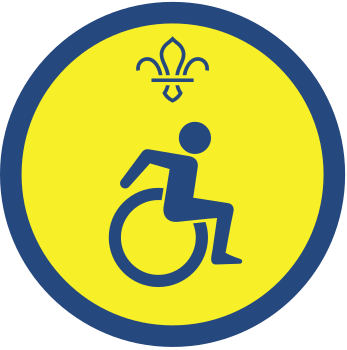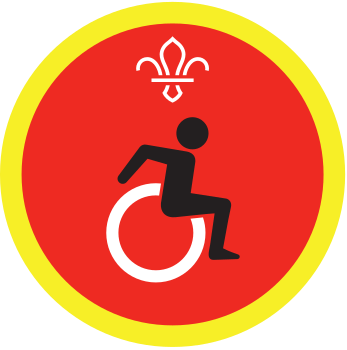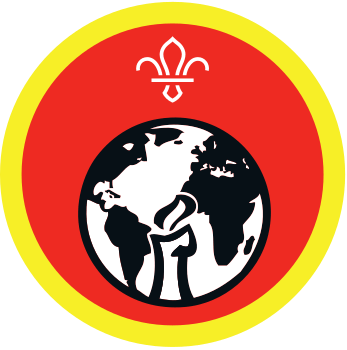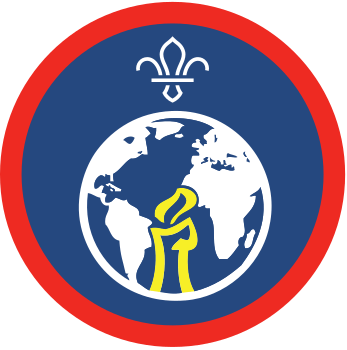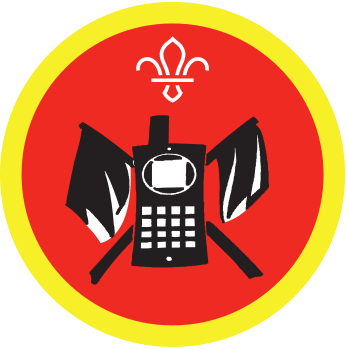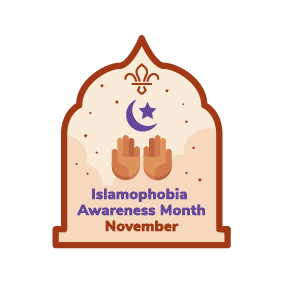
Learn how to sign the Islamic call to prayer
You’ll need
- Access to the internet
- A device to play YouTube videos for the whole group to see
Before you begin
- Use the safety checklist to help you plan and risk assess your activity. Take a look at our guidance to help you carry out your risk assessment, including examples.
- Make sure all young people and adults involved in the activity know how to take part safely.
- Make sure you’ll have enough adult helpers. You may need some parents and carers to help if you’re short on helpers.
Scouts is open to everyone. We don’t identify exclusively with one faith, and we welcome people of all faiths and of none.
We know it’s important for people to learn about each other, including understanding different faiths and beliefs. Scouts always respects people’s beliefs, faiths and cultures, and everyone should be open to learn.
As an inclusive and values based movement, we support our members to engage and learn about different faiths and beliefs in an exciting and meaningful way, even if they don’t have a faith themselves.
Celebrating and understanding differences, including differences in faiths and beliefs, is an important part of our Scout values, which are:
- Integrity: We act with integrity; we are honest, trustworthy and loyal.
- Respect: We have self-respect and respect for others.
- Care: We support others and take care of the world in which we live.
- Belief: We explore our faiths, beliefs and attitudes.
- Co-operation: We make a positive difference; we co-operate with others and make friends.
Our value of Belief and its exploration helps Scouts to learn from other faiths and beliefs. This encourages them to develop or build their personal beliefs and understand their shared values, whether faith-based on not.
We know that learning about faiths, beliefs and different attitudes can help to break down barriers, helps us all to recognise what we have in common, and teaches us to value and respect other people. It also helps us to build up respect, acceptance and knowledge for each other, leading to a more co-operative and inclusive society.
In our diverse society, people can sometimes feel cautious talking about this sensitive subject. However, it's important that Scouts offers young people safe, exciting and open spaces to explore faiths and beliefs. They should be able to engage in personal reflection, as they question and develop their opinions and understanding of the world around them.
Making time for personal reflection and developing our beliefs means exploring the places, people, communities, celebrations or stories which hold meaning for us, and it may not necessarily mean exploring a faith.
For example, someone’s shared values may be their Scout Values and that person may choose to reflect on them at important times, such as when they make their Promise. Others may choose to reflect at certain times of the year, such as a faith-based festival, birthdays, meaningful events or at New Year. Some people may still celebrate events, such as Christmas, but use it as a time to celebrate family, friends and loved ones, as well as for charity and giving.
Discover more about Faiths and Beliefs in Scouts.
- The Adhan, which is the Islamic call to prayer, is one of the most recognisable elements of Islamic culture. The words of the call to prayer have stayed the same since the time of Prophet Muhammad.
- It’s the call you’ll hear five times a day, from mosques around the world, announcing that it’s time for prayer. This is traditionally done from a tall tower called the minaret.
- Muslims all around the world pray five times a day, at specific times. This is one of The Five Pillars of Islam, called Salah.
- Prayer is important as it allows Muslims to communicate with Allah.
- Before praying, Muslims wash their face, arms, head and feet, in a ritual called Wudu.
- Muslims face in the direction of the holy city of Makkah (often spelt Mecca) to pray. This is called Qibla in Arabic. They also set their intentions before they pray.
- Muslims follow set prayer positions, including bowing and kneeling in a particular way and in a particular order.
Planning and setting up this activity
- You might want to watch the video before the session.
- Set up your meeting place with the video ready to play, so that the whole group will be able to see clearly.
- If you’ve got a large group or a small screen, you could try to have more than one device, or do this activity with one smaller group at a time.
- Although this activity is tailored for predominantly Muslim Scout Groups, all groups are welcome to take part. You can find more information about the call to prayer on this page, and you could find out a bit more about Islam first, with our Exploring the five pillars activity.
To watch in full screen, double click the video
Introducing the Islamic call to prayer
- Gather everyone in a circle and tell everyone that they’ll be learning more about Islam and, specifically, the Islamic call to prayer.
- Ask if anyone knows anything about the Islamic call to prayer, such as what it is or its purpose.
- Explain that the Islamic call to prayer is called the adhan. It’s one of the most recognisable elements of Islamic culture, announcing that it’s time for prayer. It’s often heard five times a day, from mosques around the world. This is traditionally done from a tall tower at a mosque, which is called the Minaret.
Communicating with everyone
- Ask everyone how would someone access the call to prayer if they had hearing loss? How could it be communicated in an accessible way? They might suggest a TV broadcast, with the call to prayer communicated in sign language or with subtitles.
- Explain that sign language is a visual means of communication. It’s used by some people who have hearing loss. The most common form of sign language in the UK is British Sign Language (BSL). British Sign Language has its own grammatical structure and syntax. As a language, it isn’t dependent on or strongly related to spoken English.
- Tell everyone that in 2003, the UK government recognised BSL as its own language. In 2022, it became recognised legally as an official language in England and Wales. British Sign Language is the preferred language of around 145,000 people within the UK.
- Explain that other countries have their own sign languages too, including American sign language or Arabic sign languages, such as Saudi Sign Language in Saudi Arabia.
Learn the signs
- Watch the video together and learn the signs. You might want to watch the whole video to start with, and then watch again, pausing after each phrase.
- Remember to learn the sign language using the video, rather than asking volunteers to teach the group, as you usually need to have a minimum of a Level 3 or 4 Certificate in British Sign Language (BSL) to teach others.
- If you can’t watch the video at your meeting place, you may want to see if anyone in your local BSL community would be willing to come in and teach your group instead.
- Once you’ve practiced, ask everyone which signs they can remember.
Reflection
This activity got us to think about languages and how people who are hearing impaired might communicate. Can you think of any other ways people might communicate?
An important part of both our Scout values and the Muslim faith, is treating people with kindness and respect, and helping each other. How can we support everyone to be included and feel welcome at Scouts? How can we support people who communicate in different ways? How can we help remove barriers and build connections within our communities?
Safety
All activities must be safely managed. You must complete a thorough risk assessment and take appropriate steps to reduce risk. Use the safety checklist to help you plan and risk assess your activity. Always get approval for the activity, and have suitable supervision and an InTouch process.
- Electrical equipment
Inspect cables for any damage before each use. A responsible adult should supervise people using equipment, and people should follow instructions on how to use them correctly and safely. They should be properly maintained and stored. Be extra cautious of trailing cables and water when using electric equipment.
- Online safety
Supervise young people when they’re online and give them advice about staying safe. Take a look at our online safety or bullying guidance. The NSPCC offers more advice and guidance, too. If you want to know more about specific social networks and games, Childnet has information and safety tips for apps. You can also report anything that’s worried you online to the Child Exploitation and Online Protection Command. As always, if you’ve got concerns about a young person’s welfare, including their online experiences, follow the Yellow Card to make a report.
To make this easier, you could split everyone into groups, with each group learning one phrase. Then everyone can come back as a whole group and put what they’ve learned all together.
You could learn some vocabulary about Islam instead, such as the Islamic greeting 'assalamu alaikum' which means ‘peace be upon you’. You can learn some signs in this BSL Signs for Islam video from the National Deaf Children’s Society.
Your group can go as quickly or as slowly as everyone needs to when learning the signs for the call to prayer.
If anyone has hearing loss, uses BSL or has a hearing impairment, or has a close friend or family member who does, you might want to chat to them, alongside a parent or carer, before you do this activity and make any adjustments, so they feel comfortable joining in.
All Scout activities should be inclusive and accessible.
If you enjoyed this activity, you could learn more words or phrases in British Sign Language. Try introducing yourself with Sign with me or practise finger spelling with Silent sprint. You could also learn some more vocabulary around Islam in this BSL Signs for Islam video from the National Deaf Children’s Society.
If you’ve any Muslim members in your group, you could offer them the opportunity to share their experiences, but only if they want to and are comfortable to do so. You may want to ask or chat to them before the session, so they don’t feel put on the spot or singled out.
